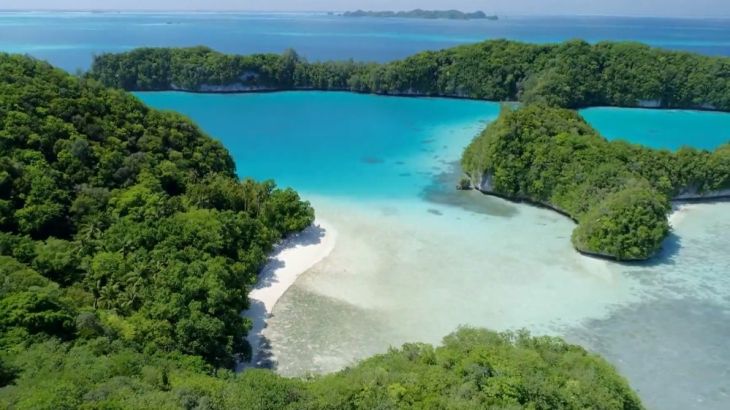
Planet SOS: Where will climate refugees go when the tide rises?
We travel to the island nation of Palau to explore the impact of rising seas and warming waters due to climate change.
The island nation of Palau in the western Pacific Ocean is on the front line of the climate crisis. We explore the impact of rising seas and warming waters on the people of the Pacific and on many others who live in low-lying coastal areas around the world.
The very thing that has long nurtured people there now threatens them and their way of life. Oceans are warming and becoming more acidic. Sea levels are rising.
Keep reading
list of 4 itemsAfter the Hurricane
World’s coral reefs face global bleaching crisis
Why is Germany maintaining economic ties with China?
Al Jazeera’s Nick Clark sits down with the President of Palau, Tommy Esang Remengesau Jr, a veteran campaigner on the world stage who is fighting to draw attention to the impacts of climate change on people and the natural world.
Clark explores efforts to protect the unique biodiversity of Palau, including a unique sub-species of jellyfish.
And as coral reefs around the world turn into bleached coral graveyards, Al Jazeera’s Oliver Varney goes underwater to observe the pioneering work of scientists hoping to unlock the secret of Palau’s super corals and create special strains able to withstand the stresses of a warming planet.
Heidi Zhou-Castro travels to the Alaskan village of Newtok where Alaskan natives are confronting the emotional and financial toll of having to move as the sea consumes their homes.
And Mereana Hond lays out the vast impacts of just a half-degree Celsius rise in global temperature.
Planet SOS speaks to scientist Ralph Keeling who, along with his father Charles, measured levels of carbon dioxide in the atmosphere – what’s now known as the Keeling Curve.
Finally, Al Jazeera’s Natacha Butler is in The Netherlands where they are using age-old technology to explore the possibility of building homes on the water.